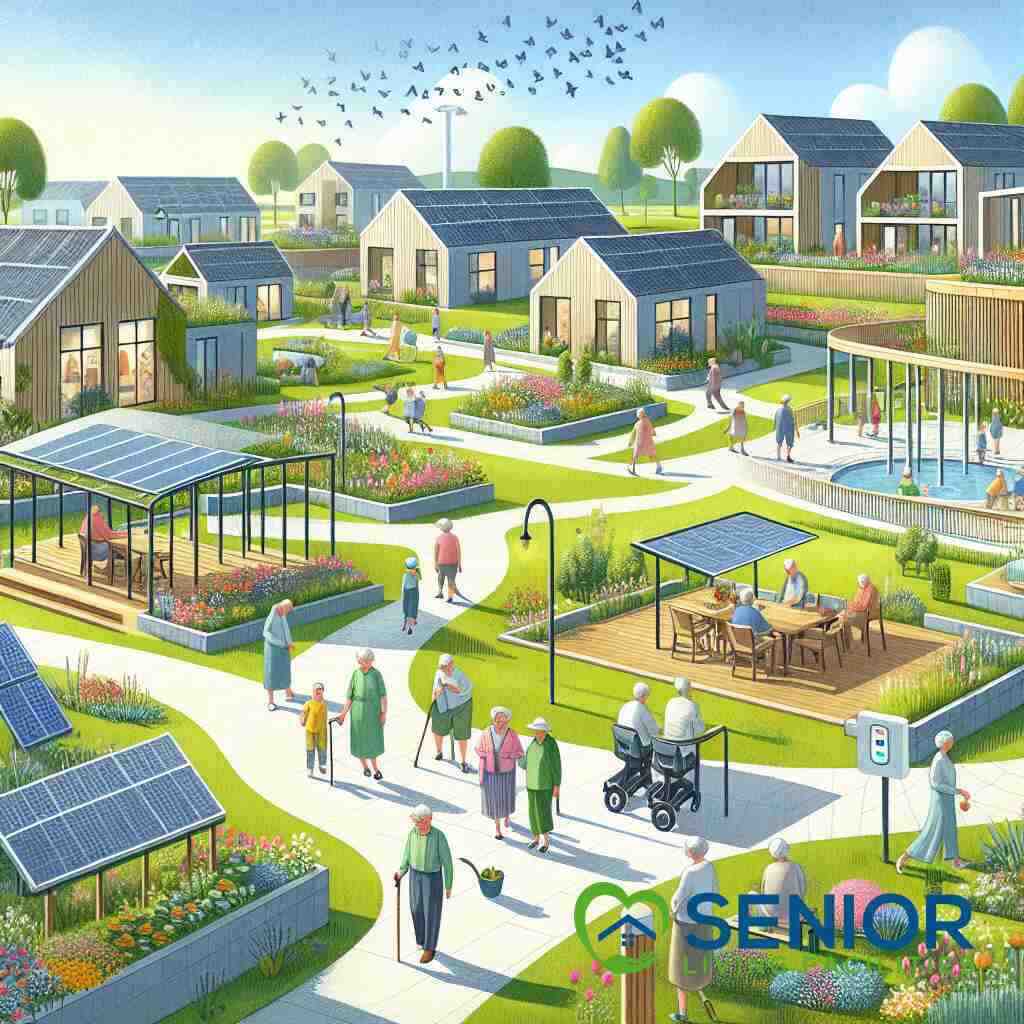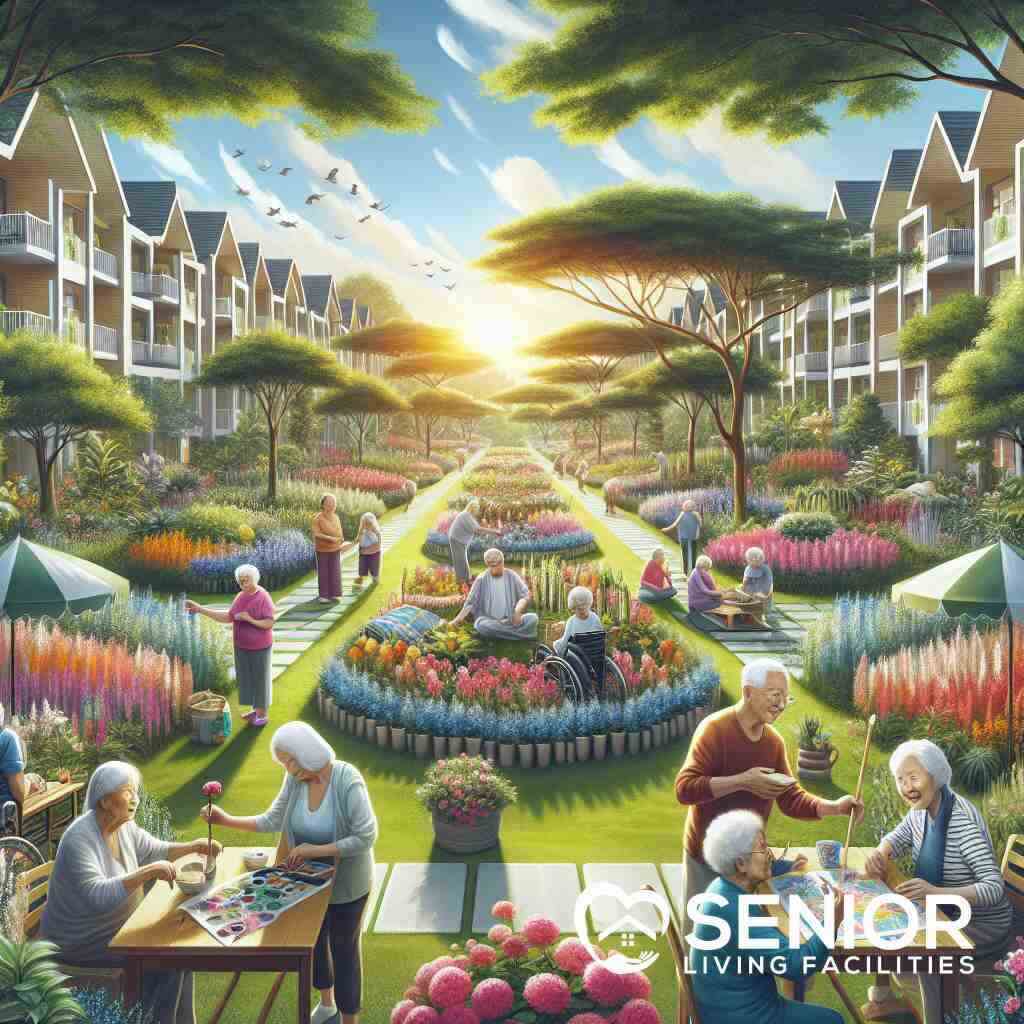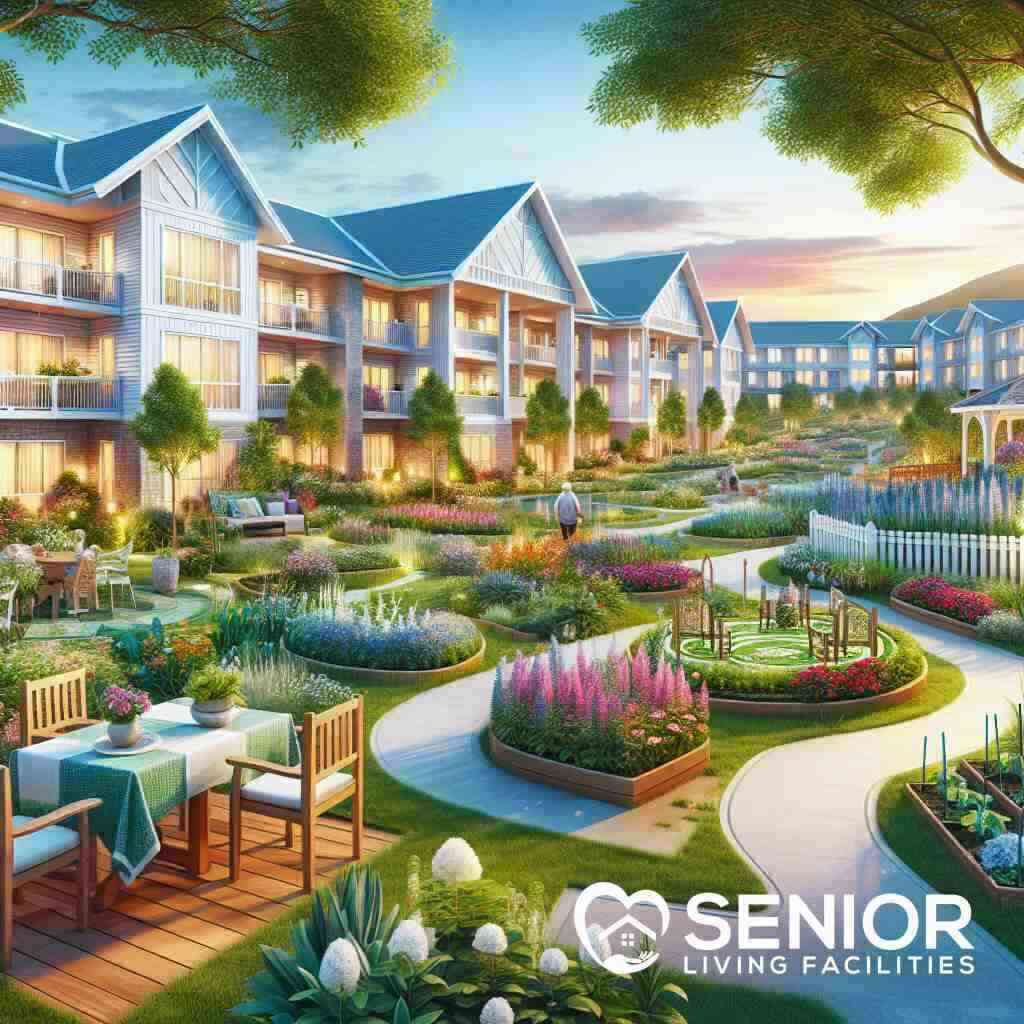
What is a Senior Living Facility? Definition & Examples
September 14, 2023
Introduction
Definition of Senior Living Facilities
Senior living facilities are specialized housing options designed to cater to the unique needs of older adults. They offer a range of services from medical care and assistance with activities of daily living to recreational and social activities. The primary goal of senior living facilities is to provide a safe, comfortable, and supportive environment where seniors can live with dignity while receiving the necessary care and attention.
Importance of Considering Senior Living Options
With the aging population on the rise, it’s essential for older adults and their families to explore senior living options well in advance. Early planning helps in making informed decisions and ensures that the chosen facility aligns with the individual needs and preferences of the senior. Senior living facilities offer unmatched services in medical care, personal care, and social activities, making them an increasingly popular choice among older Americans.
Scope of the Blog
This blog aims to provide an in-depth look into what senior living facilities are, the various types available, and key considerations when making a choice. By the end of this blog, you should have a comprehensive understanding of senior living facilities and know why seniorlivingfacilities.com is your best resource for finding local senior living near you.
Different Types of Senior Living Facilities
Assisted Living Facilities
Assisted living facilities are among the most common types of senior living communities. These facilities are designed to provide assistance with daily activities such as bathing, dressing, and medication management while still promoting independence. Each assisted living community is equipped with trained medical staff to ensure the safety and well-being of its residents. In addition to medical services, they offer various social activities to keep residents engaged and connected.
Independent Living Communities
Independent living communities are best suited for older adults who can manage their daily activities without much assistance. These communities often feature senior apartments, single-family homes, or even private rooms, depending on the facility. Residents in these communities usually do not require constant medical attention, making it a more flexible option for those looking to maintain a sense of independence in their golden years.
Skilled Nursing Facilities
Skilled nursing facilities are specialized for seniors who require 24/7 medical attention. A team of registered nurses, therapists, and other medical professionals are always on hand to provide skilled nursing care. These facilities are well-equipped to manage chronic health conditions and offer various therapies including physical therapy.
Memory Care Options
Memory care options are specialized facilities designed to cater to seniors with Alzheimer’s disease or other forms of dementia. These facilities provide a secure environment and a higher level of care to ensure the safety and well-being of residents. The staff in memory care facilities are trained in dementia care and offer supportive services to help manage memory loss.
Continuing Care Retirement Communities
Continuing care retirement communities (CCRCs) offer multiple levels of care within one facility. Starting from independent living to assisted living and even skilled nursing care, these communities provide a seamless transition as the resident’s needs change.
Key Factors to Consider
Level of Care
- Independent Living: Best for seniors who need little to no assistance with daily activities.
- Assisted Living: Ideal for seniors who need help with activities of daily living.
- Skilled Nursing: Suited for those who require round-the-clock medical attention.
Cost and Financial Considerations
It’s essential to consider the cost of living in senior living facilities, which can vary greatly. Some facilities may offer financial assistance or have partnerships with insurance providers to help offset costs. Planning and research are crucial in finding a facility that meets your financial requirements.
Location and Accessibility
Location is another critical factor to consider. Senior living near you would be an ideal choice as it makes it easier for family members to pay personal visits. Local community engagement is also a factor to consider, as some facilities offer transportation services to local events or shopping.
Amenities and Services
Medical Services
Quality care is a top priority in senior living facilities. With on-site medical staff, these communities ensure that seniors receive timely medical attention, making them a safe and reliable option.
Social Activities
Social connection is crucial in older age. Senior living communities offer a wide range of social activities, from fitness center classes to golf courses, to keep their residents engaged and socially active.
Common Areas
Common areas like lounges and gardens offer residents spaces to relax and socialize. These areas are designed with seniors in mind, providing a comfortable environment to foster social connections.
Dining Room and Food Services
Quality dining services are an integral part of senior living facilities. Nutritional needs are carefully considered, and meals are prepared by skilled chefs, offering a dining room experience that is both healthy and enjoyable.
Role of Family Members
Communication with Staff
Open communication with the facility’s staff is essential. This ensures that the family members are always updated about the well-being of their loved ones and any changes in their care or medical conditions.
Personal Visits
Personal visits not only bring joy to the residents but also give family members a chance to assess the level of care provided by the facility. Most senior living facilities have visitor-friendly policies to encourage family involvement.
Involvement in Decision-making
Family members should be involved in significant decisions affecting the resident’s care. Their insights and observations can be valuable in assessing the quality of care and making necessary adjustments.
Involvement in Decision-making
Family members play a critical role in decision-making processes, especially when it comes to choosing a senior living facility. They can offer insights into the senior’s preferences, medical conditions, and social needs, making the decision more comprehensive and tailored. Their active participation can also be a comforting factor for the senior who may be apprehensive about this life-changing transition.
Health Care Services
Medical Staff and Registered Nurses
In the best senior living facilities, medical staff and registered nurses are readily available to provide health care services. They are trained to deal with a variety of medical situations, from emergencies to the daily management of chronic health conditions. A well-staffed medical team is essential for the well-being of the residents, ensuring they receive timely and appropriate care. At senior living facilities, residents and their family members can rest assured knowing that medical professionals are always on hand, providing a safety net that is often missing in one’s own home or other housing arrangements.
Chronic Health Conditions and Disease Control
Managing chronic health conditions is an integral part of the care offered in senior living facilities. Be it diabetes, hypertension, or other long-term conditions, tailored health programs and medication management plans are created for each resident. Disease control measures are also highly prioritized. Facilities maintain strict cleanliness standards and have protocols for infection control, making them a safe environment for seniors.
Advantages and Disadvantages
Pros of Senior Living Facilities
Choosing a senior living facility offers multiple advantages, starting with a host of medical and personal care services designed for older adults. From skilled nursing care to assistance with daily activities, these facilities provide a comprehensive range of services under one roof. Additionally, social activities and common areas provide an opportunity for seniors to engage with peers and participate in community events, enhancing their overall quality of life.
Cons of Senior Living Facilities
While senior living facilities offer many benefits, there are also some downsides to consider. For instance, the cost can be a significant factor for many families. Even though some facilities offer financial support services, the overall expenditure can still be daunting for some. Also, depending on the level of care required, some seniors might find the environment too restrictive, especially if they are used to living independently.
How to Weigh Your Options
It’s important to weigh the pros and cons before making a decision. Senior living facilities near you may offer tours and personal visits to give you a first-hand experience of the services and amenities provided. Use these opportunities to assess whether the facility meets your specific needs and expectations.
Legal and Ethical Considerations
Regulations and Compliance
Senior living facilities are governed by a set of regulations to ensure the safety and well-being of their residents. These include compliance with local and federal laws pertaining to health care, staff qualifications, and residents’ rights. Prospective residents and their families should make it a point to inquire about the facility’s compliance records and any past incidents that could be of concern.
Residents’ Rights
Understanding the rights of residents is critical when considering a senior living facility. Residents have the right to quality care, privacy, and dignity, among others. These rights are protected by law, and violations can result in severe consequences for the facility. Therefore, ensuring that a facility respects and upholds these rights is crucial when making your decision.
Special Needs and Services
Support Services for Physical Health
Senior living facilities often provide specialized support services to meet the physical health needs of their residents. This can range from physical therapy sessions to specialized gym facilities equipped to cater to the physical limitations and requirements of older adults.
Memory Loss and Cognitive Care
For residents suffering from memory loss or cognitive impairments, specialized memory care options are available. These services are provided by trained professionals in environments designed to stimulate cognitive function while providing a secure and supportive environment.
Social Workers and Supportive Environment
Social workers play an essential role in providing a supportive environment in senior living facilities. They offer emotional support, assist with paperwork, and help families navigate through the complexities involved in caring for an older adult.
Frequently Asked Questions
How to Choose a Senior Living Facility?
Choosing a senior living facility involves several factors including the level of care required, the amenities offered, and the location. It’s crucial to visit different communities, speak with staff and residents, and assess the overall environment before making a decision.
What are the Alternatives to Senior Living Facilities?
Alternatives to senior living facilities include in-home care, adult day care centers, and staying with family members. Each of these options has its own set of pros and cons, and the best choice would depend on the individual needs and circumstances of the senior.
How Safe are Senior Living Facilities?
Safety is a top priority in senior living facilities. With round-the-clock medical staff and stringent safety protocols, these facilities are equipped to deal with emergencies and routine medical issues. Additionally, security measures are in place to ensure the physical safety of all residents.
Conclusion
Summary
In conclusion, senior living facilities offer a range of services and amenities to cater to the diverse needs of older adults. They provide medical care, help with daily activities, and offer a variety of social activities. The role of family members is crucial in the decision-making process, and various factors like level of care, cost, and location should be considered before making a choice.
Final Thoughts and Recommendations
Our recommendation is to utilize the resources available on seniorlivingfacilities.com to find the best local senior living options near you. The website offers a wealth of information to help you make an informed decision. Whether you are looking for an independent living community, an assisted living facility, or any other form of senior housing, seniorlivingfacilities.com is your one-stop resource for all your senior living needs.
Thank you for reading this comprehensive guide. We hope it helps you in finding the right senior living facility for you or your loved one.


